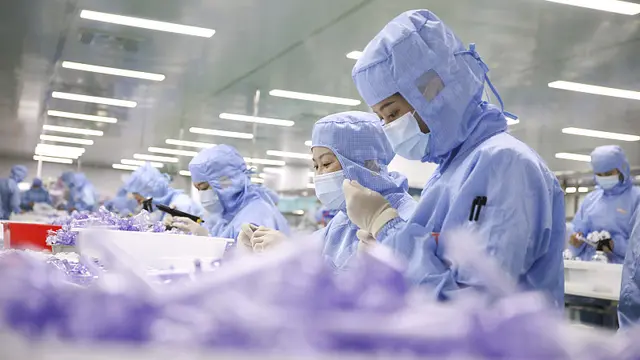An anti-graft campaign has swept across China's medical field over the past month, with multiple hospital heads and medical officials under investigation.
Jointly initiated by the National Health Commission (NHC) and nine other departments in July, the campaign aims to rectify prominent malpractices such as using power to seek rent, favoritism in drug and equipment procurement, accepting kickbacks, and offering or accepting bribes, the NHC said in a statement on Tuesday.
The year-long campaign is expected to foster an atmosphere of honesty and integrity in the medical sector, it said.
According to the NHC, the campaign covers all aspects of the medical sector, including the administration, medical societies and associations, medical and healthcare institutions, medical enterprises and medical insurance funds. And the anti-corruption drive focuses on individuals working in key positions in the sector.
"The medical sector is closely linked to the well-being and lives of every individual. It is a sector that absolutely brooks no corruption," said a spokesperson for the NHC, adding that such a crackdown in the medical sector benefits society as corruption raises medical costs for the people.
Following the campaign requirements, local authorities have taken vigorous measures to crack down on misconduct and illegalities in the sector.
Data from the Central Commission for Discipline Inspection (CCDI) of the Communist Party of China (CPC) showed that more than 160 hospital directors and heads have been investigated, and the list of those apprehended in the campaign keeps growing.
Cases involving corruption in this sector are often elusive. One instance published by the country's top anti-graft watchdog revealed that a hospital head in northeast China's Heilongjiang Province had asked for kickbacks from drug salespeople, using a different phone number each time when contacting them, making deals on remote roads, and depositing illicit cash with banks in other places with his relatives' help.
In addition to the swift and potent measures, China is also exploring a long-term mechanism that ensures the transparent operation of the medical sector.
The country is moving to intensify comprehensive regulation of the medical industry. For example, reforms in public hospitals, emphasizing the standardization of medical service pricing and the payment system, are actively advanced. Efforts are also being made to regulate the development of private medical institutions.
(CGTN)
 简体中文
简体中文

